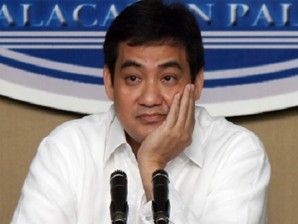World Bank seeks refund of $199,900 from Supreme Court

Malacañang on Wednesday called on the Office of the Ombudsman to wade in and see if the WB report could be the basis of a graft complaint against concerned officials of the Supreme Court.
The World Bank says it wants a refund by the end of this month of a portion of its $21.9-million (P953.3 million) loan to the Supreme Court, after a review uncovered the misuse of funds meant to support judicial reforms.
A bank memorandum submitted to Philippine officials last month said its review late last year found that the checks and balance mechanisms under the Judicial Reform Support Project (JRSP) had been diminished since mid-2010.
A copy of the bank’s report, released on Wednesday by the Department of Finance (DOF), showed that it sought a refund of $199,900 in “ineligible expenditures” to the Washington-based lender by Jan. 31, 2012.
The bank described the JRSP as a “high risk” project and said its financial statements “can no longer be relied upon.”
Demanding that heads should roll for the “scandalous” and “shocking” World Bank findings, Malacañang on Wednesday called on the Office of the Ombudsman to wade in and see if the report could be the basis of a graft complaint against concerned officials of the Supreme Court.
Presidential spokesperson Edwin Lacierda also seized the occasion to unleash another tirade against embattled Chief Justice Renato Corona in connection with the JRSP.
‘Personal piggy bank’
“The Chief Justice used judicial reform funds as a personal piggy bank to fund travel, gifts, dining and recreation. The Court administrator (Midas Marquez, who) reports directly to the Chief Justice, violated basic government rules by being the proponent, approver and head of bidding for his own proposed expenses and acquisitions,” Lacierda said in a statement.
“We have always been confident that as long as the rules are applied and transparency observed, then wrongdoing will be revealed. Accountability is catching up with the Chief Justice and his subordinates who have given the Supreme Court a bad name, and who have shown themselves blind to the cause of reform,” he added.
“This is a loan and, therefore, this JRSP grant will be paid for by Filipino taxpayers and will have to be audited by the Commission of Audit. If there are any appearances of graft and corruption, certainly the Ombudsman should take a look into this World Bank aide memoire,” Lacierda later said in a briefing.
“(The report) practically says there has been a breakdown of financial controls and, in fact, it’s a diplomatic way of saying you mismanaged the funds,” Lacierda said.
He also pointed out that “16 of the 70 ineligible transactions” were attributed in the report to Court Administrator Marquez and his office.
6 main findings
The Palace also prepared a media briefer on the WB report, which summed up the findings and drew attention to what it called the project’s “downward trajectory” starting in mid-2010 under Corona’s watch. The JRSP was approved in August 2003.
The briefer also highlighted the report’s six main findings on the implementation of the JRSP: unreliable financial statements, unsatisfactory management style, the use of World Bank funds for ineligible transactions, self-serving internal audit, lack of segregation of duties and procurement irregularities.
At the DOF, the agency called on the Supreme Court to punish those responsible for the misuse of funds. “The WB mission’s report points to serious deficiencies in the implementation of the project and we request the leadership of the (high court) to swiftly respond to these observations,” it added.
Finance officials, including Finance Secretary Cesar Purisima, were among those provided with “carbon copies” of the WB report, which was dated Dec. 28, 2011, and addressed to Associate Justice Teresita L. de Castro.
The World Bank earlier acknowledged the document’s existence but had not released it to the public.
Misuse of autonomy
“Fiscal autonomy is a privilege granted to an institution to preserve its independence,” the DOF said. “It cannot be used, however, to shirk from public accountability and hide the truth from the sovereign people, which we all serve.”
Last year, Corona invoked the high court’s fiscal autonomy when he alleged that Malacañang, through the budget department, tried to slash the allocations that the judiciary had proposed for the 2012 national budget.
But it later turned out that the allocations in question had been left intact as the budget bill made its way through Congress.
“We are all stewards of the people’s money, for the sake of truth and accountability, the leadership of the (Supreme Court) must … explain to the public how they have used the funds which they have held in trust for the Filipino people,” the DOF said.
The WB’s observations, the department stressed, “point to systemic problems in the SC’s finances.” With a report from AP